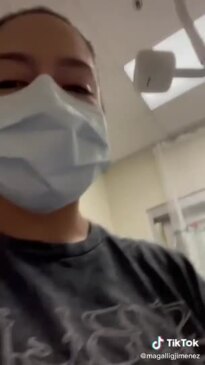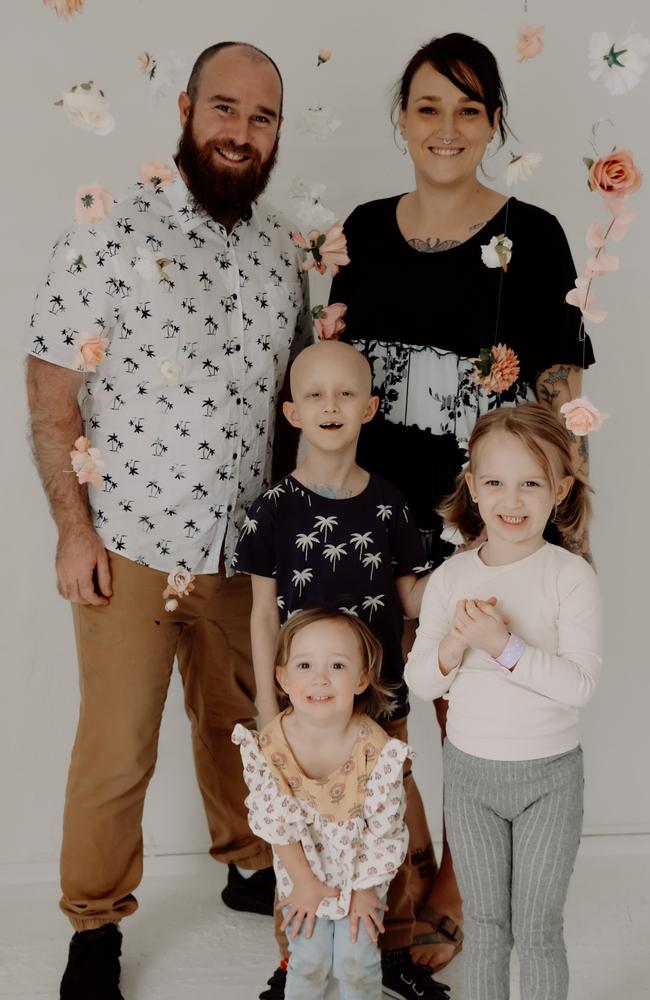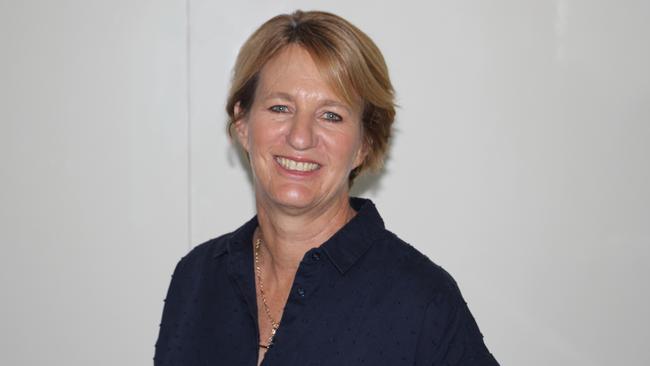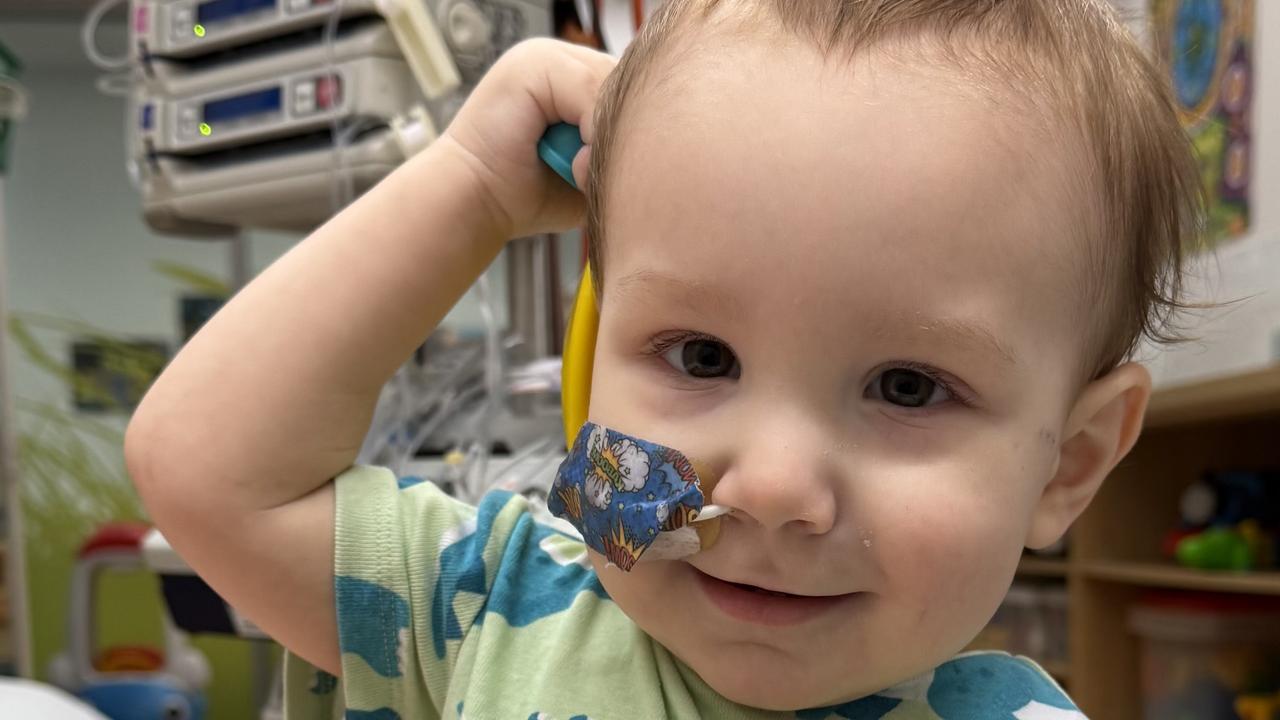Major cash boost to help Aussie kids with cancer
A new research program could be the key to discovering “less invasive” treatments in childhood cancers.

Health
Don't miss out on the headlines from Health. Followed categories will be added to My News.
The Jepson family were just three days into a road trip in September last year, when their son Oliver, affectionately called ‘Ollie Bear’, started seeing double.
Five days later a scan would reveal an embryonal rhabdomyosarcoma – a cancerous brain tumour behind his right ear, the size of a large lime.
With immunotherapy unavailable as a treatment option, the Jepson family had no choice but to watch on as Ollie, now seven, bravely endured gruelling rounds of radiation and chemotherapy.
Ollie’s dad Nathan stressed how hard it was watching his child going through such a drastic physical change.
“During treatment, we’ve seen him drop to a little boy that we don’t recognise,” he said.

However, there could be hope for other children similar to Ollie to have improved access to immunotherapy treatment with an announcement made today from the Australian Cancer Research Foundation (ACRF).
The Foundation has awarded $10 million in funding to the four most promising cancer research projects nationwide.
Two million dollars has been awarded to the Children’s Cancer Institute of NSW – ACRF Spatial Immune-oncology Research program, which will explore the potential of immunotherapies for childhood cancer.
Immunotherapy involves boosting the body’s immune system to find and destroy cancer cells and while there have been some remarkable results seen in the treatment of adults, the same level of success have not yet translated to children.
Associate Professor Paul Ekert, who heads the program, said in the case of adults, Immune-oncology research had “turned something that was lethal into something that is survivable”.
“In children we do not have a detailed understanding in most cases, and that’s in large part what this grant is about, it’s about filling in that huge gap in knowledge,” he said.
For the Jepsons, the decision to put Ollie on radiation and chemotherapy was a given, despite the concern Ollie will likely “find it much harder” to conceive his own children one day, from the lifelong side effects from the treatment.
“We’d rather hit all of his body and system with something that builds him up and helps his body grow stronger to attack something rather than what we put him on which kills everything,” Mr Jepson said.

ACRF CEO Kerry Strydom said all four grant winners exemplified the organisation’s mandate of backing the “most brilliant and promising research”.
“We look forward to seeing the recipients use the funding to achieve breakthroughs that will no doubt save countless lives and improve outcomes for people diagnosed with cancer,” she said.
While Ollie still has good days and bad, Mr Jepson said his son enjoys focusing on his “monster-mash” artwork when he’s undergoing treatment in hospital, crafting designs “full of vibrant colours to represent the joy he feels inside”.
He said the family hoped this research grant can “open up avenues” for other parents and allow them to choose treatments that are “less invasive” for their children.
The grants would help medical staff “effectively taking out the cancer” but also giving their young patients “a better, long, healthier life,” Mr Jepson said.
More Coverage
Originally published as Major cash boost to help Aussie kids with cancer




